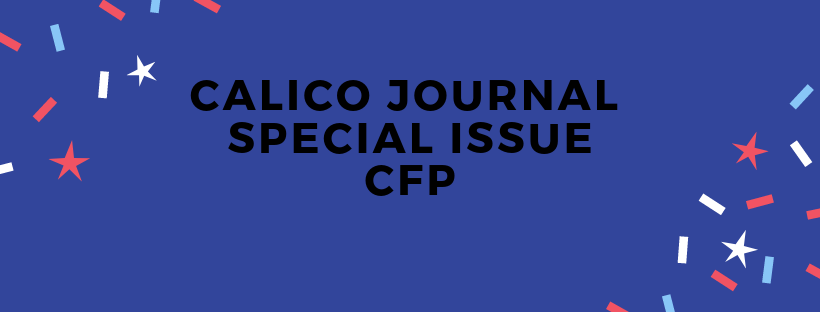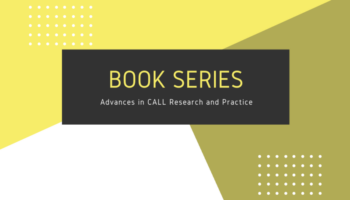-
Announcement Journal change from Equinox to University of Toronto Press
We are excited to announce that the CALICO Journal is joining two dozen other journals in the linguistics list of Equinox Publishing Ltd. that are moving to the University of Toronto Press (UTP) starting in fall 2024. In doing so, we will join a prestigious and well-established academic publisher known for its commitment to high-quality scholarship across a range of disciplines. UTP is one of North America’s most respected university presses, with a history dating back to 1901. Known for its leadership in academic publishing, particularly in the humanities and social sciences, it has built a global reputation for producing rigorous, peer-reviewed publications. This makes UTP a fitting new home…
-
CALICO Journal 43:1, Special Issue Call for Papers
Special Issue Title: Inclusion & Diversity in CALL,CALICO Journal 43.1 (February, 2026) Co-editors: Carolyn Blume (TU Dortmund), Jules Buendgens-Kosten (Goethe University Frankfurt), Peter Schildhauer (Bielefeld University) In theory, digitalization offers new opportunities to meet learners’ needs. This is especially true for those learners whose needs are considered atypical or who are at risk of educational exclusion due to marginalization or as a result of systemic barriers that interfere with participation. The potential role of computer-assisted language learning (CALL) is particularly important, given the centrality of digital media and mediatization to contemporary communication, language learning, and inclusion (Alper & Irons 2020; Blume & Bündgens-Kosten 2023; Reinhardt & Thorne 2017; Sauro &…
-
Language Technology Review Editor Search
The editors of the CALICO Journal are recruiting a Learning Technology Reviews (LTR) Editor. The LTR editor will be responsible for soliciting reviews of language learning courseware, tutorial apps, and online resource websites and will work closely with authors in bringing the reviews to publishable quality. The LTR editor will also use the journal’s online management system to manage these manuscripts through all stages of the publishing process. This is an unpaid position and requires a two-year commitment. The CALICO Journal publishes an average of six LTRs per volume (two per issue) and uses the framework and format described in Hubbard (2019). Generally speaking, reviews may be no more than…
-
New Journal Issue Available, 40#2
Vol. 40 No. 2 (2023) Published: 2023-05-25 Editorial Articles Book Reviews Learning Technology Reviews
-
CALICO Journal CALICO Journal special issue, Technology-Mediated Task-based Language Teaching and Learning, Call for Papers
Papers are invited for a special issue of CALICO, the journal of the Computer-Assisted Language Instruction Consortium, on ‘Technology-Mediated Task-based Language Teaching and Learning. We are pleased to invite proposals for the special issue of volume 42 of the CALICO Journal, which will be published in February 2024. With this call for proposals, we are looking for (a) guest editor(s), who will produce an issue on a timely and compelling CALL-related theme that will resonate with our readership and move the field forward. If you are interested in becoming a guest editor, please submit a proposal addressing the following points: (1) name(s) and affiliation(s) of the guest editor(s)(2) topic of…
-
CALICO Journal Special Issue Call for Papers
Special Issue Title: Social media pathways: Using social media to help language learners access target-language communities Co-editors: Ellen Yeh (Columbia College Chicago) and Nicholas Swinehart (University of Chicago) This CALICO Journal special issue explores and investigates CALL practices through the concept of “social media pathways”: using social media to help language learners access target-language communities, both virtual and physical. Social media tools have the potential to help language learners retrieve and critically assess crowd-sourced information from the local community of a target culture (Yeh & Mitric, 2021), enhance intercultural communicative competence (Lomicka & Ducate, 2021), foster social media literacy (Vanwynsberghe et al., 2015; Yeh & Swinehart, 2020), form language learner…
-
Welcome to the Team, New Book Series Editor
My pleasure to announce that Steph Link is our new Book Series Editor. A huge thank you to Greg Kessler, our previous book series editor, for all of his work these years! Welcome to Steph who has been a CALICOer now for quite a while and familiar to most of you. We look forward to working more with you. See also our call for proposals for the next book series book.
-
Call for proposals: Spring 2024 Book Series Volume
CALICO is now soliciting proposals for the next volume in the Advances in CALL Research and Practice book series to be published with Equinox Publishing in spring 2024! The volume may be a single-authored monograph or edited volume and may treat any topic related to the field of CALL. Proposals are due July 15. You can find the full call at this link. You can also email series editor, Steph Link (steph.link@okstate.edu), with questions or meet her at the CALICO conference in Seattle to talk through some ideas. Looking forward to seeing your proposals!
-
New Issue of the Journal
VOL 39, NO 1 (2022) Special Issue: Emergency Remote Language Teaching and Learning in Disruptive Times Guest Edited by Li Jin, Elizabeth Deifell, and Katie Angus Table of Contents Editorial Emergency Remote Language Teaching and Learning in Disruptive Times Li Jin , Elizabeth Deifell , Katie Angus Articles When “Blended” Becomes “Online” : A Data-Driven Study on the Change of Self- Directed Engagement During COVID-19 Dennis Foung , Julia Chen , Linda Lin Connecting Through Flipgrid : Examining Social Presence of English Language Learners in an Online Course During the Pandemic Ellen Yeh , Grace Y. Choi , Yonty Friesem Pivoting, Partnering, and Sensemaking : How Teachers Navigate the Transition to Remote Teaching Together Jillian M. Conry , Ann M. Wernick , Paige Ware “Siempre…
-
Call for Chapter Proposals, Book Series
CALICO Book Series: Advances in CALL Research and Practice (https://calico.org/book-series/) CALL FOR CHAPTER PROPOSALS 2022 CALICO Book Title: IDENTITY, MULTILINGUALISM, AND CALL Chapter Proposals due – August 1, 2020Guest Editor: Liudmila Klimanova, Ph.D. Interest in digital multilingual identity in the fields of applied linguistics and language education has been growing exponentially in recent years, encompassing new variables and realities of life, such as translanguaging, heightened multilingualism, linguistic superdiversity, multimodal computer-mediated communication, and even social justice and forensics (e.g., Chiang & Grant, 2018; Grant & Macleod, 2016). New theoretical assumptions and recent global challenges urge us to problematize the construct of virtual identity (Kramsch, 2009) in the face of globalization, increased…





